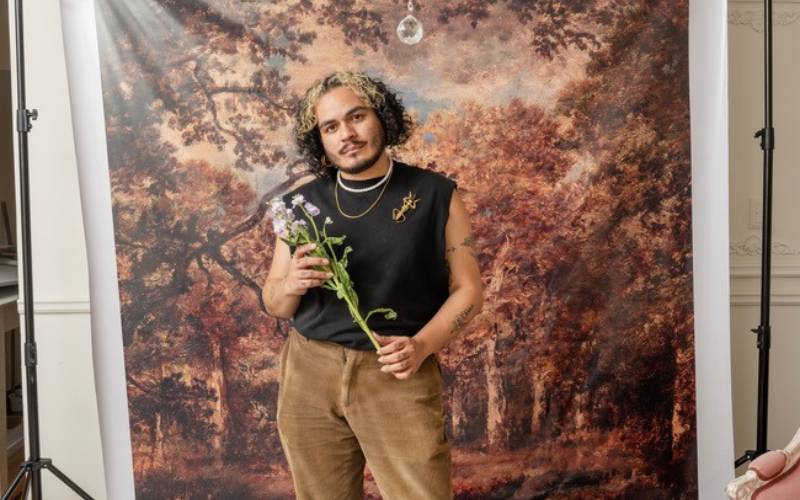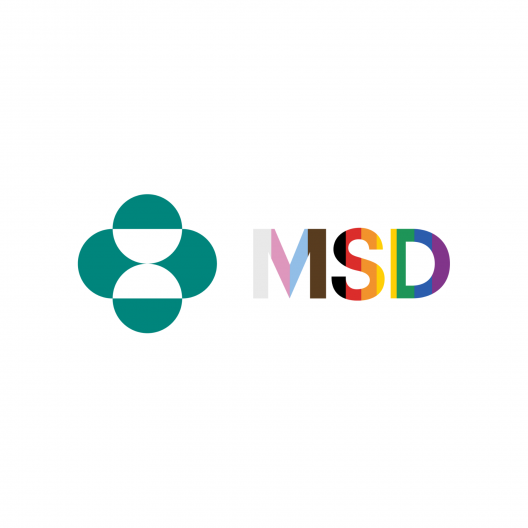
Allyship Looks Like Constantly Questioning the Gender Binary Inside Ourselves and All Around Us
Interviews
"Growing up in a very small city in Colombia, I did not have much representation of LGBTQIA+ people at all, let alone of people who challenged the gender binary." Nico Rojas, a Senior Clinical Data Manager at MSD, came out as non-binary in their early twenties, they are a strong believer that questioning the gender binary benefits everyone in society, and their journey has made them a better ally to those around them. From teaching, to the professional world at MSD, showing up authentically as themselves has led them to become an inspiration to those around them and myGwork spoke to Nico about their journey, allyship and the workplace.
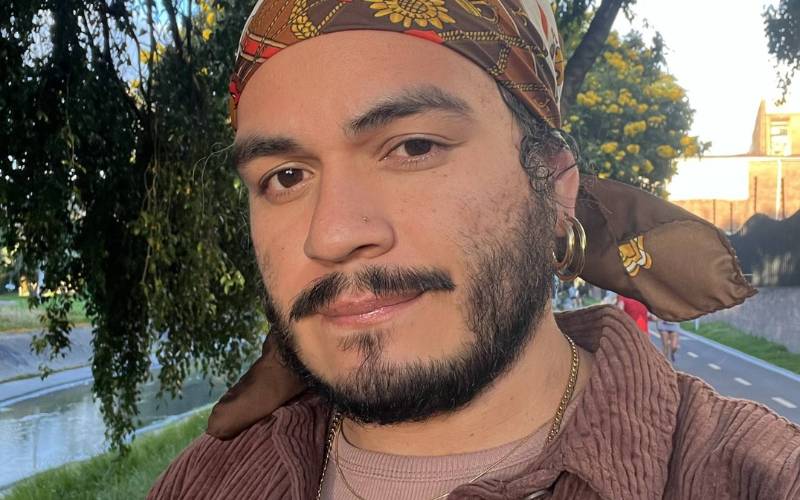
Hi Nico, thank you for chatting to us! Can you please tell us a bit about yourself?
I’m Nico, a Colombian non-binary person who also identifies as trans and transvestite. I have majors in biology and chemistry and master’s degrees in biology and education. After finishing my grad studies, I became a high school teacher and, after three years, switched careers to begin in clinical data management. I have worked at MSD for two and a half years now, and I have led our LGBTQIA+ EBRG for over two years.
What does allyship look like to you?
Allyship looks like constantly questioning the
gender binary inside ourselves and all around us. It looks like questioning the
way our societies have worked for centuries to accommodate the idea that only
men and women exist and that being a man or a woman seals a definitive path
for each person to navigate society. We need to open our eyes to all the less
obvious ways in which this constant categorizing and policing has hurt us as
individuals and as a society.
Why is it important to have conversations
on non-binary inclusion in the workplace?
It is important because the non-binary community deserves to be taken into account, valued and included. Inclusion does not look the same for everybody, so it is key to learn how to negotiate the ways in which we interact with one another. This will help not only non-binary folks but everybody! We tend to assume that everyone around us can be easily categorized and that we can easily predict how everyone wants to be treated. It is a necessity to break that paradigm and start negotiating with one another.
What are a few things that workplaces can
do to ensure they are welcoming for their non-binary colleagues?
1. Normalize the use of preferred names and
pronouns, not only in emails and teams but also in presentations, team
buildings, etc.
2. Create inclusive bathrooms but also the culture
that anybody can use any bathroom they like.
3. Normalize conversations around the negotiation of how to treat each other.
"
Can you tell us a bit about your experience coming out at work?
Sure! It has not been easy. Since my first
job as a teacher, I have found a lot of resistance. In private high schools, LGBTQIA+ topics are still taboo and being out of the closet can cause you to
lose your job. That was a big motivation for me to switch careers into a space
where I could be out and safe.
Coming into MSD, I made the conscious
decision to be as genuine as possible, using my pronouns and announcing my
identity whenever I had the chance to present myself to new people. I did this
to test the waters so I could find out as soon as possible if the company was a
safe space in which I could thrive because of who I am and not in spite of it.
Most of the people have welcomed me with open hearts and minds, even if they
don’t always use the correct pronouns, in Spanish, it is a bit harder to be
fluent in gender neutral.
I did encounter, at first, a bit of pushback, some people thought the way I dressed, talked, walked, etc., was a performance with the goal to be disruptive. They soon understood that I simply am like this and that by allowing myself to be free of such societal expectations, I am also helping to build safer spaces in which people are free to explore how they want to express themselves. Queer people have historically had to work harder just to be valued as much as anybody else, and this is still a reality in most contexts.
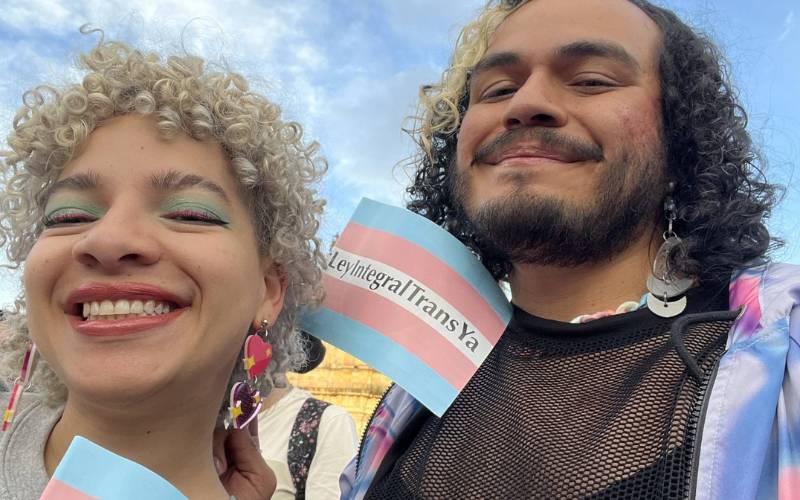
What advice would you give to a non-binary
person nervous about coming out at work?
First, find your allies! Make sure to have
peers, but also people in upper management you can trust. Identify who you can
trust to bring your issues, either to vent out, to brainstorm solutions to
issues you may face, or to vouch for you if it is ever needed.
Once you feel you have a strong safety network, take the leap, even if it is scary at first. Be as vulnerable as possible and share your process with whoever shows interest in it. Coming out is a personal process, but it can also be a chance to grow as a community and to let people in.
"Open dialogue, education and representation in powerful or influential places will be the key for people to understand that non-binary people exist, how we should be treated and the huge potential we have in the workplace and in society in general."
What are some of the biggest challenges we
still have in creating an inclusive workplace, and how do you think we can overcome
these?
The biggest challenges we still face are
cultural. If the culture does not adapt to gender non-conforming people, it
will be hard to access education, to be recruited for jobs, to have fair
opportunities to advance our careers and ultimately to be valued and
appreciated.
Open dialogue, education and representation
in powerful or influential places will be the key for people to understand that
non-binary people exist, how we should be treated and the huge potential we
have in the workplace and in society in general.
Have you always felt welcome in LGBTQ+
spaces? How can we ensure that LGBTQ+ spaces are fully inclusive for non-binary
people?
Not always. The reality is trans and gender non-conforming people can feel odd when LGBTQIA+ spaces are cis-dominant. It is really important for all LGBTQIA+ members to be aware that there is a lot of diversity inside our own community, so we all need to learn a lot from one another, including how to offer safer spaces so people can open up and share who they are and what concerns them.
"
Did you have any positive non-binary
representation growing up? What was the impact of this?
Growing up in a very small city in Colombia, I did not have much representation of LGBTQIA+ people at all, let alone of people who challenged the gender binary. I understood myself as non-binary around my middle twenties, and it was in part because before, I did not have the representation or the words to describe such life experiences. Folks on the internet like Alok V Menon, JVN and Drag Race participants were the ones who inspired me the most in the way I think and feel about gender, together with the Colombian community of trans and gender non-conforming people, including sex workers.
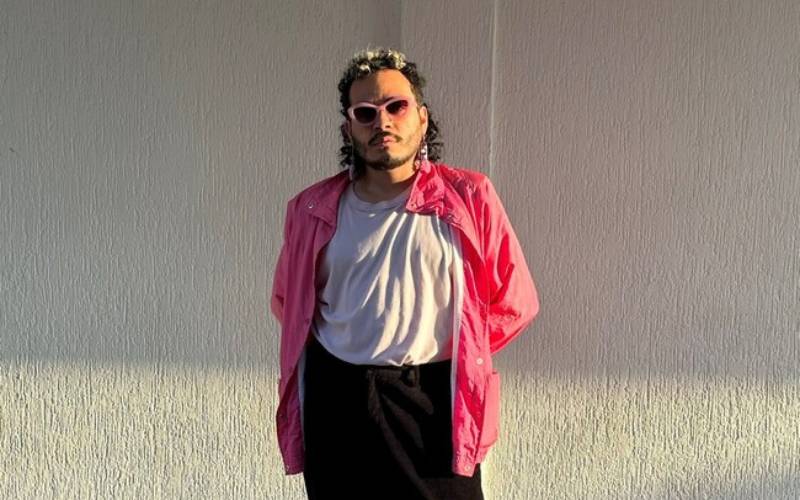
What is the importance of non-binary
visibility to you, and how do you think we can increase authentic
representation?
We need tons more representation! This
will not only give a chance to non-binary folks to identify themselves in
culture but also promote the conversation around the gender binary
and how to treat those people who live outside of it.
How do you think you can personally
contribute to changing your organization’s culture for the better?
It has always been clear that the most
important thing is existing inside my company. Expressing myself freely,
existing as I feel comfortable, being authentic and vulnerable, but also
speaking up when needed. Even from a simple conversation with a colleague
bigger cultural impacts can be achieved.
I have had the wonderful opportunity to receive feedback from my colleagues, and they have said I am an inspiration to them. An inspiration for the first batch of trans people arriving at our company who now know they have a safe space to fight for their rights and their inclusion. An inspiration for LGBTQIA+ folks in general who have said when they saw me at the company, they understood it was safe for them to be out of the closet and share their personal experiences. And an inspiration for cis-straight people who now allow themselves to question their identity, play with their expression and change their worldview.
